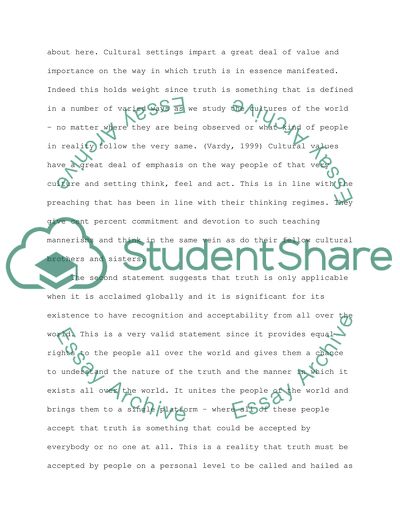Cite this document
(“Theory of Knowledge: Different cultures have different truths. A truth Essay”, n.d.)
Theory of Knowledge: Different cultures have different truths. A truth Essay. Retrieved from https://studentshare.org/miscellaneous/1542682-theory-of-knowledge-different-cultures-have-different-truths-a-truth-is-that-which-is-accepted-universally-what-are-the-implications-for-knowledge-of-a
Theory of Knowledge: Different cultures have different truths. A truth Essay. Retrieved from https://studentshare.org/miscellaneous/1542682-theory-of-knowledge-different-cultures-have-different-truths-a-truth-is-that-which-is-accepted-universally-what-are-the-implications-for-knowledge-of-a
(Theory of Knowledge: Different Cultures Have Different Truths. A Truth Essay)
Theory of Knowledge: Different Cultures Have Different Truths. A Truth Essay. https://studentshare.org/miscellaneous/1542682-theory-of-knowledge-different-cultures-have-different-truths-a-truth-is-that-which-is-accepted-universally-what-are-the-implications-for-knowledge-of-a.
Theory of Knowledge: Different Cultures Have Different Truths. A Truth Essay. https://studentshare.org/miscellaneous/1542682-theory-of-knowledge-different-cultures-have-different-truths-a-truth-is-that-which-is-accepted-universally-what-are-the-implications-for-knowledge-of-a.
“Theory of Knowledge: Different Cultures Have Different Truths. A Truth Essay”, n.d. https://studentshare.org/miscellaneous/1542682-theory-of-knowledge-different-cultures-have-different-truths-a-truth-is-that-which-is-accepted-universally-what-are-the-implications-for-knowledge-of-a.


